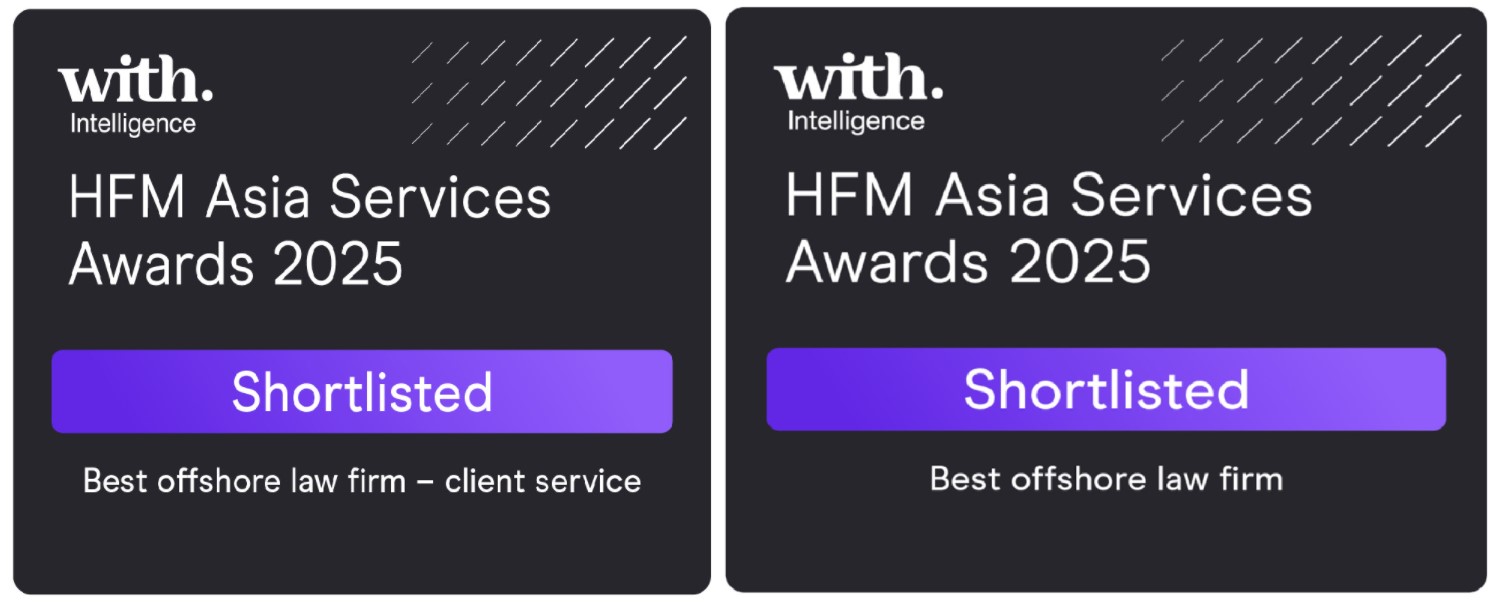About Loeb Smith
People
Sectors
Expertise
- Legal Service
- Banking and Finance
- Blockchain, Fintech and Cryptocurrency
- Capital Markets and Privatization
- Corporate
- Cybersecurity and Data Privacy
- Insolvency, Restructuring and Corporate Recovery
- Insurance and Reinsurance
- Intellectual Property
- Investment Funds
- Litigation and Dispute Resolution
- Mergers and Acquisitions
- Private Client and Family Office
- Private Equity and Venture Capital
- Governance, Regulatory and Compliance
- Entity Formation and Managed Services
- Consulting
- Legal Service
News and Announcements
Locations
Subscribe Newsletters
Contact
Cayman Islands to introduce new regime for registration and licensing of Directors
20 May 2014 . 8 min readThe EU’s General Data Protection Regulation (“GDPR”) applies to offshore investment funds with European investors. The Cayman Islands Data Protection Act, 2021 (“DPA”), regulates the processing of all personal data. Inspired by the UK’s Data Protection Act, the DPA includes provisions very similar to GDPR (together “Data Protection Laws”), with certain notable differences.
Even though the DPA applies generally to the processing of personal data and not just to investment funds, within this context and as part of the subscription process, investors are required to provide a government-issued photo ID, source of funds and wealth, contact details, payment details, and tax residence information, or even additional information about employment, dependents, income and investment objectives (the “Investor Personal Data”), which are processed and stored by or on behalf of the investment fund (the “Fund”) and/or by one or more of the service providers to the Fund. Some of the processing may be done by different parties in various jurisdictions.
Within the context of investment funds, the Administrator, Transfer Agent, Distributor, and the Investment Manager of a Fund may fall within the definition of a Data Controller or Data Processor. To ensure compliance with GDPR and/or DPA, the Fund’s Board of Directors should review the contractual arrangements with these parties and may need to appoint a Data Protection Officer. As a reminder, the Board of Directors of the Fund is required to supervise third party service providers and ensure that there are sufficient measures in place to protect Investor Personal Data. Privacy Notices in the Fund’s offering documents would need to be updated to ensure that investors are fully aware of where their Personal Data is being processed, by whom and for what purpose.
For ease of reference, a brief comparison between GDPR and the DPA is included below.
Comparison of the Main Provisions
| GDPR | DPA | |
| Personal Data | Any information relating to an individual who can be identified, directly or indirectly, from that data (including online identifiers such as IP addresses and cookies may qualify as personal data if they are capable of being linked back to the individual). | Same as GDPR |
| Data Controller | The person who, alone or with others, determines the purposes, conditions and means of the processing of Personal Data.
|
DPA applies to any Data Controller in respect of Personal Data (a) established and processed in the Cayman Islands; or (b) processed in the Cayman Islands otherwise than for the purposes of transit . |
| Privacy Notice | At the time of collection of the data, individuals must be informed of the purposes and detail behind the processing, the details of transfers of data and any security and technical safeguards in place. This information is generally provided in a separate privacy notice. | Same as GDPR |
| Right to Access | Individuals have the right to obtain confirmation that their Personal Data is processed and to access it. Data Controllers must respond within a month of the access request. A copy of the information must be provided free of charge. | Same as GDPR, but the DPA permits a reasonable fee to be charged. |
| Retention Period | Personal data should not be kept for longer than is necessary to fulfil the purpose for which it was originally collected. Controllers must inform data subjects of the period of time (or reasons why) data will be retained on collection. | Not a requirement under DPA. However, as with the GDPR, if there is no compelling reason for a Data Controller to retain Personal Data, a data subject can request its secure deletion.
|
| Right to Erase | Should the individual subsequently wish to have their data removed and the Personal Data is no longer required for the reasons for which it was collected, then it must be erased. Data Controllers must notify third party processors or sub-contractors of such requests. | Same as GDPR |
| Transfers | International transfers permitted to third party processors or between members of the same group. | Same as GDPR. |
| Data Security | Minimum security measures are prescribed as pseudonymisation and encryption, ability to restore the availability and access to data, regularly testing, assessing and evaluating security measures. | Appropriate technical and organisational measures must be taken to prevent unauthorised or unlawful processing of Personal Data and against accidental loss or destruction of, or damage to, Personal Data . |
| Data Processors | Security requirements are extended to data processors as well as Data Controllers | There is no liability for processors under the DPA. However, they may be held liable based on contract or tort law. |
| Data Breach | Data Controllers must notify the regulatory authority of Personal Data breaches without undue delay and, where feasible, not later than 72 hours after having become aware of a breach. | In the event of a Personal Data breach, the Data Controller must, “without undue delay” but no longer than five (5) days after the Data Controller should have been aware of that breach, notify the Ombudsman and any affected individuals |
| Breach Notice | The notification should describe the nature of the breach, its consequences, the measures proposed or taken by the Data Controller to address the breach, and the measures recommended by the Data Controller to the individual concerned to mitigate the possible adverse effects of the breach. | Same as GDPR. |
| Right to be Forgotten | An individual may request the deletion or removal of Personal Data where there is no compelling reason for its continued processing. | The DPA contains a similar right, although this is expressed as a general right of “erasure”. Under the UK’s Data Protection Act, the right is limited to processing that causes unwarranted and substantial damage or distress. Under the DPA this threshold is not present. As with the GDPR, if there is no compelling reason for a data controller to retain Personal Data, a data subject can request its secure deletion. |
| Right to Object | An individual has the right at any time to require a Data Controller to stop processing their Personal Data for the purposes of direct marketing. There are no exemptions or grounds to refuse. A Data Controller must deal with an objection to processing for direct marketing at any time and free of charge. | Same as GDPR. |
| Direct Marketing and Consent | The Data Controller must inform individuals of their right to object “at the point of first communication” and in a privacy notice. For any consent to be valid it needs to be obvious what the data is going to be used for at the point of data collection and the Data Controller needs to be able to show clearly how consent was gained and when it was obtained. | Including an unsubscribe facility in each marketing communication is recommended best practice. If an individual continues to accept the services of the Data Controller without objection, consent can be implied. |
| Data Processors | The GDPR sets out more detailed statutory requirements to apply to the controller/processor relationship, and to processors in general. Data Processors are now directly subject to regulation and are prohibited from processing Personal Data except on instructions from the Data Controller. | Best practice would always be to put in place a contract between a controller and processor. Essentially, the contract should require the Data Processor to level-up its policies and procedures for handling personal data to ensure compliance with the DPA. Use of sub-contractors by the service provider should be prohibited without the prior approval of the Data Controller. |
| Data Protection Officer | Mandatory if the core activities of the Data Controller consist of processing operations which require large scale regular and systematic monitoring of individuals or large scale processing of sensitive Personal Data. | Does not require the appointment, although this is recommended best practice. |
| Penalties | Two tiers of sanctions, with maximum fines of up to €20 million or 4% of annual worldwide turnover, whichever is greater. | Refusal to comply or failure to comply with an order issued by the Ombudsman is an offence. Penalties are also included for unlawful obtaining or disclosing Personal Data . Directors may be held liable under certain conditions .
The Data Controller is liable on conviction to a fine up to CI$100,000 (approx.. US$122,000) or imprisonment for a term of 5 years or both. Monetary penalty orders of an amount up to CI$250,000 (US$304,878.05) may also be issued against a Data Controller |
Further Assistance
This publication is not intended to be a substitute for specific legal advice or a legal opinion. If you require further advice relating to the matters discussed in this Briefing, please contact us. We would be delighted to assist.
E: gary.smith@loebsmith.com
E: robert.farrell@loebsmith.com
E: ivy.wong@loebsmith.com
E. elizabeth.kenny@loebsmith.com
E: cesare.bandini@loebsmith.com
E: vivian.huang@loebsmith.com
E: faye.huang@loebsmith.com
E: max.lee@loebsmith.com
E: frost.wu@loebsmith.com
Latest Updates and News
News | 06 May 2025
Loeb Smith ranked by Lexology as Legal Influencers Q1 2025 for Private client…
Loeb Smith ranked by Lexology as Legal Influencers Q1 2025 for Private Client...
News | 06 May 2025
Loeb Smith Attorneys’ recognised again on the list of ALB Hong Kong Firms to watch 2025 list
Loeb Smith recognised again on the list of ALB Hong Kong Firms to watch 2025

News | 06 May 2025
Loeb Smith Attorneys shortlisted in two categories at the With Intelligence HFM Asian Services Awards 2025
We are excited to be shortlisted once again in the “Best offshore law firm” and “Best offshore law firm - client service” categories for the With Intelligence HFM Asia Services Awards 2025! 🥳 🥂👏

News | 02 April 2025
Loeb Smith Attorneys acts as Cayman and BVI legal counsel to Hong Kong Listed Company CTF Services Limited in its Acquisition of a Substantial Shareholding in uSmart Inlet Group Ltd
Loeb Smith Attorneys acted as Cayman and BVI legal counsel to CTF Services Limited in its acquisition of a substantial shareholding in uSmart Inlet Group Ltd, a leading technology firm specializing in financial services across Hong Kong and Singapore, valued at US$130 million.

